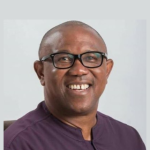Opinion: Scrambling for Admission into Nigerian Universities Crises
Articles/Opinion, Latest Headlines, Prof.R.A Ipinyomi Saturday, August 8th, 2015
By Prof R. A. Ipinyomi, University of Ilorin Nigeria – The Federal Republic of Nigeria is organised into 36 States and has in addition a Federal Capital Territory (FCT) in Abuja. Each of the States now has at least one Federal Universities and one or more State or a Private University. In all there are over 140 accredited universities in Nigeria but with a limited carrying capacity of about 300,000 admissions each year currently. The number of applications for admission each year is currently not less than 2,000,000. Hence only 3 out of 20 applicants may get a place, if admissions are evenly distributed. Admissions are however never evenly distributed, but skewed by universities, parents abilities to lobby and pay for education, carrying capacities of institutions, government interferences, etc.
Before 1970 Nigeria had only 5 Universities (Ibadan, Ife, UN, Lagos and ABU). University of Benin was established thereafter. We would however recall the dramatical and exponential expansions witnessed in the number of universities as a result of the oil boom years of the 1970s and most recently during the last 16 years of democracy in Nigeria. Since 1999 tertiary level of education has expanded to reach every State of Nigeria including about 3 universities in the FCT. The Federal government and the State governments were previously the only bodies licensed to operate universities. Recently, licenses have been granted to individuals, corporate bodies and religious bodies to establish private universities in the country.
The National Universities Commission (NUC) is the major accreditation and regulatory body that enforces uniform standard and sets admissions capacity of every university in Nigeria. Similarly the Joint Admission and Matriculation Board has the sole responsibility to conduct entrance examinations to the tertiary institutions in Nigeria. These two independent bodies together with various universities function to manage admissions. In order word these three organisations are to carry out the Education policy of the Federal Republic of Nigeria, if there was one. If a crisis ensues we can trace such to the doorstep of one or all the three.
Is there a defined government education policy in Nigeria beyond politicians making noises at campaigns? When a State or Federal government agent is pronouncing a “Free Education for All Policy” in his State or at the Federal level does the individual understand the importance and implications of the pronouncements? So far we have several education policies but for which Nigeria has not signed up to as a policy. (1) The policy that the economy should determine the university admissions from year to year. In that case NUC should harvest inputs and requests from governments and industries on forecasts of immediate future manpower needs. The universities would then be billed to train students to meet demands in numbers, competences, and types. Both government and industries should sponsor the training. (2) University education is a right to be made available to qualified applications. This policy envisions that everyone who passes JAMB minimum score must be given admission. Thus the JAMB, NUC, and universities will share the burden of placing students and training them as requested by the demands from applications. No industry is obliged to engage a graduate it did not request for. Graduates are on their own after graduation. (3) Parents and guardians are responsible for the education of
their children but government is to provide the opportunities and places. This is a shared responsible where parents have major inputs especially to determine who gets what level of education in the family subject to family resources.
In my 37 years as a lecturer in Nigerian Universities (1978 to date) we have been exposed to students’ plights, patents’ desires and limitations, governments’ easy pronouncements and in abilities, NUC so called carrying capacity and a respective university actual carrying capacity, unqualified university administrators at the hem of affairs and very prudent others, government wastages in the form of contracts awards to frivolous items and lack of priorities and consistent continuity amongst others. I can say clearly that Nigeria has no consistent commitment and policy towards the education of its youths. However I can also appreciate the efforts of individual parents Nigerian parents, missionaries, NGOs, foreign partners and others in ensuring that education is made both available and affordable to Nigerian youths. Over the years we have noticed competitions amongst states. Up to the 1970s we used to described university students from the core northern Nigeria as “over pampering to read“ and the whole region educationally less developed. States like old Ondo State in the West, old Imo State in the East were topmost in education. Today the very reverse is the case because of several improvements by States like Jigawa from old Kano, Kebbi from old Sokoto State and many others. This background information may help in solving admission crises into our universities.
If a nation like Nigeria will still keep treating some parts of its components as special under its so called Federal Character, creating proportional admission like 40% merit, 30% catchment areas, 30% educational level developed areas, then we can have some applicants scoring 250 and not get the admission while another scores 200 and is admitted. Meanwhile the one that gets only 200 scores and the admission may be more able to afford the price of any university in the country. Similarly if parents are unable to select courses or universities appropriately then we have a situation where mostly the applications go to one university and very few to others. People should know by now that if you make an application to join the police we won’t post you to the army after the unsuccessful interview. You make it or fail where you apply. It is the same in the university where if a student who scored 270 failed to get the medical admission he may not be considered for zoology where the cutoff is say 200. Some universities and JAMB in their magnanimity are trying to transfer applications to ensure their admissions. From my experience students who initially applied for Engineering but found Physics, Medicine but were given Biochemistry, Law but got Linguistics had always performed poorly because of low morale. Students do better when they get where and what they apply for.
I worked with some private Universities while on sabbatical and saw their operation, motivation, and understanding about education. Private universities are more inclined to getting their money back quickly, proprietors using their universities as prestige boosting, some of them overly bossy, and imparting their religious sentiments more than meeting a national education goal. JAMB or NUC should not stress them. On one occasion I had to confront a private University proprietor to consider the difference between having only 150
students a year and charging them N 600,000 per annum and 1000 students at N 250,000 per annum. The other aspect in most of the private universities in Nigeria is that the bulk of their lecturers are drawn from Federal universities as visiting lecturers. Therefore the class of private universities we have in the United States of America (where all universities are privately owned) even in South Africa, will take a century to get here. Many of the private University proprietors in Nigeria are less dedicated to educational pursuits as they are to their private ambitions.
Hence we recommend that eventually the Federal government of Nigeria should only provide an education policy but hands off the actual running or owning universities. Communities, religious organisations, private individuals, endowments, should own and run University education in Nigeria but umpire by NUC for accreditation and JAMB for entrance examination. The Federal Ministry of education should give scholarships to students or supporting grants. Such grants may be used by the benefitting students in any class of universities and must be able to pay full tuition, feeding, accommodation and books. JAMB examinations should be annual, standard (a little above O’Level), and each successful candidate should able to use their result within 3 years. At present each result lapses after the academic year. It should have a duration. By the time a student is applying for admission all the major requirements (O’ level, A’s level, JAMB) should be in. Students should be allowed to apply separately to three university choices, separately to 3 polytechnics, and so on. Do not discriminate from admission level and later wish to equate and compare different education trainings later.
The so called admission crises into Nigerian Universities an applicant is likely to face in the current era are mostly self inflicting. The crises are results of lack of planning, public misunderstanding of Nigeria education policy, politicians and legal practitioners undisclosed interests, and applicants failure to know their abilities. I have often warned parents and prospective students to pursue a university education rather than a university course. It suffice to get any university degrees for anyone to be very successful in life. You don’t have to read a special course to be the president of Nigeria, a Senator, State Governors, a Dangotate, or Bill Gates of this world. If parents and their children are properly counselled and they are able to accept our counsel there will be only few crises in our choices.
Prof. R. A. Ipinyomi
Related Posts
Short URL: https://www.africanexaminer.com/?p=24759






















